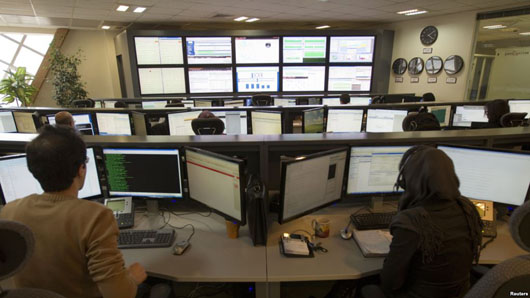by WorldTribune Staff, January 29, 2018
Iran was able to contain recent anti-government protests in part by cutting off access to the Telegram messaging app that protesters used to communicate.

Now, the Teheran regime is seeking full local control of the web in the Islamic Republic via the creation of a so-called “halal” or “permissible” Internet.
Analysts say the “halal net” is comparable to China’s “Great Firewall,” which blocks access to thousands of websites and slows to a crawl websites outside of the country.
Iran’s “performance in strangling access to opposition content during the most recent protests proved that Iran is hard on China’s heels in terms of controlling the flow of information,” the private U.S. intelligence firm Stratfor wrote in a Jan. 17 analysis.
Hard-liners in Iran have even proposed completely removing the nation from the web so the government can create its own Internet.
The Associated Press reported on Jan. 28 that Iran Telecommunications Co., owned by proxies of the Islamic Revolutionary Guard Corps (IRGC), is “one of the principal designers” of the “halal net.”
“The network has some 500 government-approved national websites that stream content far faster than those based abroad, which are intentionally slowed,” The Associated Press noted, citing a recent report by the Campaign for Human Rights in Iran. “Search results also are gamed within the network, allowing the government to censor what users find.”
The idea of a “halal” Internet originated in 2011 and was sparked by the 2009 protests.
Iran has barred Facebook, Twitter and other sites since social media helped spread information on the 2009 protests of the disputed re-election of hard-line President Mahmoud Ahmadinejad. It had already been blocking YouTube.
President Hassan Rouhani has argued that it was as impossible to stop people from using the Internet. Many Iranians are circumventing the “halal net” by using VPNs (Virtual Private Networks).
“If you want cyberspace to be useful to the community, come forward with a solution using it to promote the culture instead of blocking it,” Rouhani said.
Subscribe to Geostrategy-Direct __________ Support Free Press Foundation
